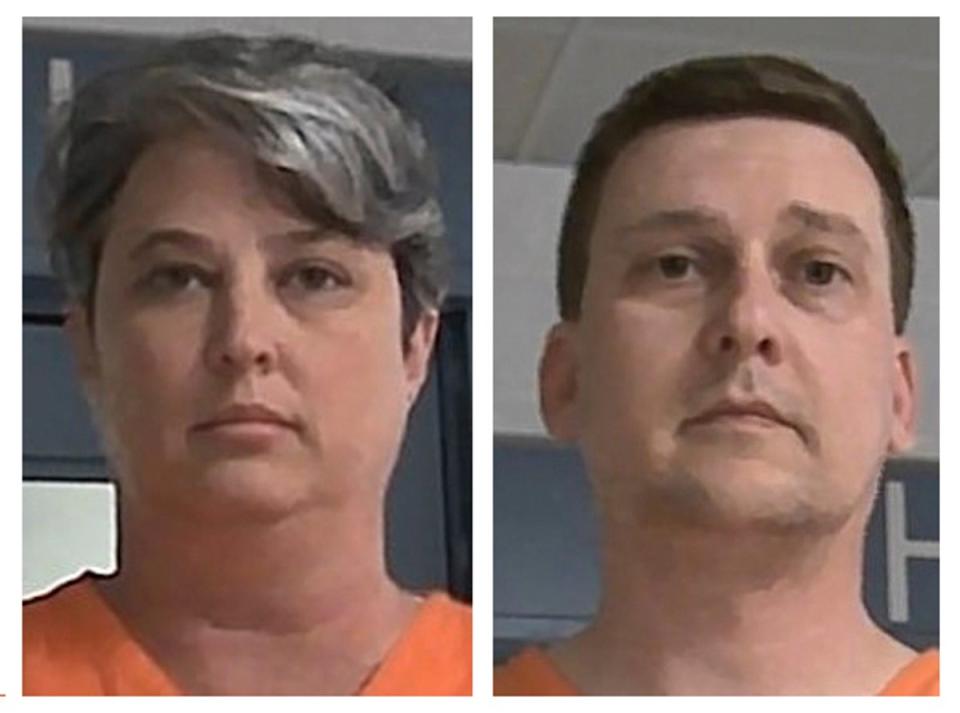Former Navy engineer and wife plead guilty in plot to sell nuclear submarine secrets
A US Navy nuclear engineer and his wife have entered new guilty pleas in connection to an alleged scheme to sell secrets about nuclear-powered submarines.
Prosecutors say that Jonathan Toebbe, 43, sold details about the design and performance of Virginia-class submarines to an undercover FBI agent that he believed was a representative of a foreign government.
Diana Toebbe, a 46-year-old private school teacher, was accused of being a lookout as the couple left memory cards containing secret information at “dead drop” locations.

The couple, who live in Annapolis, Maryland, pleaded guilty in federal court in West Virginia on Tuesday to one felony count each of conspiracy to communicate restricted data. The pleas came a month after a previous plea agreement was rejected by a judge.
Under the latest plea agreement, they would face a maximum of life imprisonment and a $100,000 fine. Prosecutors have said they will seek a sentence at the lower end of the guidelines for Ms Toebbe.
Prosecutors had previously asked for Mr Toebbe to get between 12 and 17 years behind bars, and three years for his wife.
But that was rejected by US District Judge Gina Groh who called sentencing options put forward by prosecutors “strikingly deficient” given the alleged crime.
If the court does not accept the latest plea deal the couple will be able to withdraw them and go to trial next year.
The couple was arrested last October when Mr Toebbe left a memory card to be collected at a location in Jefferson County, West Virginia.
The FBI says that the scheme began in April 2020, when Mr Toebbe sent a package of Navy documents to a foreign government and stated that he wanted to sell sensitive information, including operations manuals and performance reports.
Federal agents were given that packet in December 2020 by way of the unnamed country and launched an undercover operation during which Mr Toebe was paid $100,000 in cryptocurrency.
The country to which the suspect believed he was selling information has not been named in court or in court papers, although reports have suggested it was Brazil.
When agents eventually searched the couple’s home they allegedly found a “go bag” that contained thousands of dollars in cash, children’s passports, a USB flash drive, and latex gloves.

